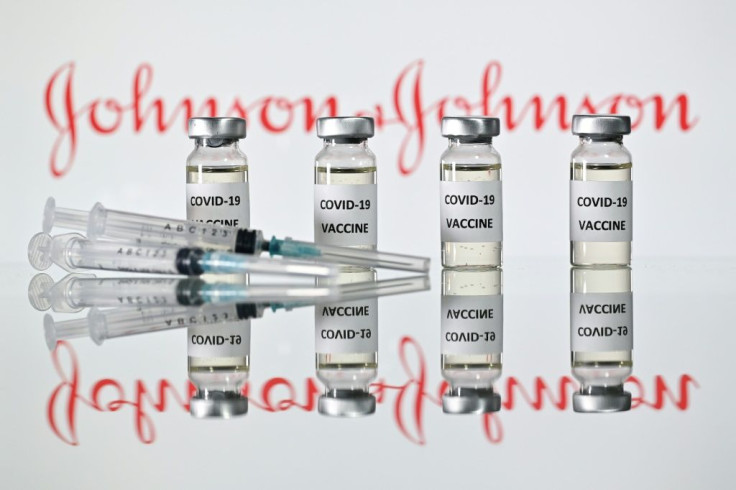Johnson & Johnson Booster Promising As COVID Vaccines’ Effectiveness Slips Amid Delta Surge
Johnson & Johnson (JNJ) announced on Wednesday that booster doses of its one-shot COVID vaccine showed a “strong” response against the highly contagious Delta variant.
The drugmaker said that after conducting two Phase 1/2a studies of about 2,000 individuals who were previously vaccinated with its single-dose vaccine, its booster dose shot generated a “rapid and robust increase in spike-binding antibodies.”
The antibodies increase nine-fold higher over the course of 28 days after the booster shot was administered, Johnson & Johnson said.
“We have established that a single shot of our COVID-19 vaccine generates strong and robust immune responses that are durable and persistent through eight months,” Mathai Mammen, global head of Janssen Research & Development at Johnson & Johnson, said in a statement.
“With these new data, we also see that a booster dose of the Johnson & Johnson COVID-19 vaccine further increases antibody responses among study participants who had previously received our vaccine.”
The antibody increase was observed in study respondents aged 18 to 55 and those 65 and older who received a lower dose of the shot.
Johnson & Johnson submitted its findings to the medRxiv journal on Tuesday. The company said it is currently working with the Food and Drug Administration and the Centers for Disease Control and Prevention regarding the booster dose as well as the European Medicines Agency.
The Johnson & Johnson one-dose COVID vaccine was authorized for emergency use at the end of February and has been administered to about 14 million Americans, according to the CDC, as reported by CNN.
The news from Johnson & Johnson comes after the Pfizer COVID vaccine was approved by the FDA on Monday and just days after a push from the Biden administration for all Americans to receive a booster dose of the shot starting on Sept. 20 - eight months after their second dose of the Pfizer or Moderna vaccine.
The vaccine news from J&J also comes as the CDC released new research on Tuesday indicating that the effectiveness of the COVID vaccines may be waning as the Delta variant makes up the majority of virus cases in the U.S., according to data from the agency, as reported by USA Today.
The research suggested that vaccine efficacy decreased in healthcare workers who were fully vaccinated as the Delta variant spread, which may be a result of the immunity decline of the vaccine over time, higher transmissibility of the Delta strain, or other factors, the CDC said.
The CDC added, “this trend should be interpreted with caution because VE [vaccine effectiveness] might also be declining as time since vaccination increases and because of poor precision in estimates due to limited number of weeks of observation and few infections among participants.”
As of Wednesday at 9:43 a.m., shares of Johnson & Johnson were trading at $174.51, down 88 cents, or 0.5%.

© Copyright IBTimes 2024. All rights reserved.





















